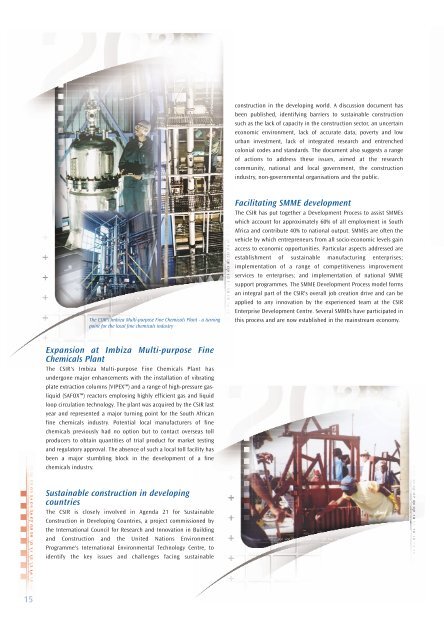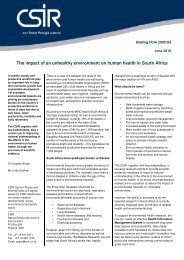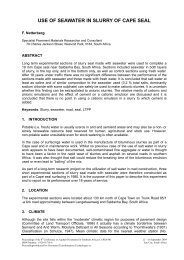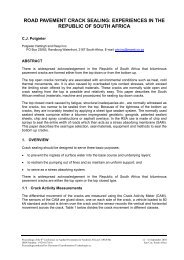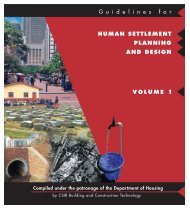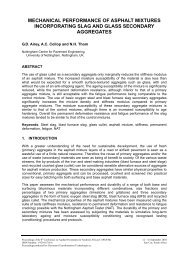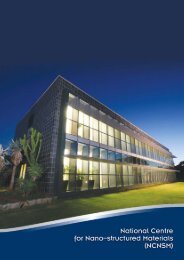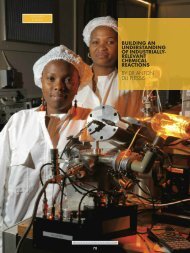CSIR Technology Impact 2002
CSIR Technology Impact 2002
CSIR Technology Impact 2002
You also want an ePaper? Increase the reach of your titles
YUMPU automatically turns print PDFs into web optimized ePapers that Google loves.
15<br />
The <strong>CSIR</strong>’s Imbiza Multi-purpose Fine Chemicals Plant - a turning<br />
point for the local fine chemicals industry<br />
Expansion at Imbiza Multi-purpose Fine<br />
Chemicals Plant<br />
The <strong>CSIR</strong>'s Imbiza Multi-purpose Fine Chemicals Plant has<br />
undergone major enhancements with the installation of vibrating<br />
plate extraction columns (VIPEX) and a range of high-pressure gasliquid<br />
(SAFOX) reactors employing highly efficient gas and liquid<br />
loop circulation technology. The plant was acquired by the <strong>CSIR</strong> last<br />
year and represented a major turning point for the South African<br />
fine chemicals industry. Potential local manufacturers of fine<br />
chemicals previously had no option but to contact overseas toll<br />
producers to obtain quantities of trial product for market testing<br />
and regulatory approval. The absence of such a local toll facility has<br />
been a major stumbling block in the development of a fine<br />
chemicals industry.<br />
Sustainable construction in developing<br />
countries<br />
The <strong>CSIR</strong> is closely involved in Agenda 21 for Sustainable<br />
Construction in Developing Countries, a project commissioned by<br />
the International Council for Research and Innovation in Building<br />
and Construction and the United Nations Environment<br />
Programme's International Environmental <strong>Technology</strong> Centre, to<br />
identify the key issues and challenges facing sustainable<br />
construction in the developing world. A discussion document has<br />
been published, identifying barriers to sustainable construction<br />
such as the lack of capacity in the construction sector, an uncertain<br />
economic environment, lack of accurate data, poverty and low<br />
urban investment, lack of integrated research and entrenched<br />
colonial codes and standards. The document also suggests a range<br />
of actions to address these issues, aimed at the research<br />
community, national and local government, the construction<br />
industry, non-governmental organisations and the public.<br />
Facilitating SMME development<br />
The <strong>CSIR</strong> has put together a Development Process to assist SMMEs<br />
which account for approximately 60% of all employment in South<br />
Africa and contribute 40% to national output. SMMEs are often the<br />
vehicle by which entrepreneurs from all socio-economic levels gain<br />
access to economic opportunities. Particular aspects addressed are<br />
establishment of sustainable manufacturing enterprises;<br />
implementation of a range of competitiveness improvement<br />
services to enterprises; and implementation of national SMME<br />
support programmes. The SMME Development Process model forms<br />
an integral part of the <strong>CSIR</strong>'s overall job creation drive and can be<br />
applied to any innovation by the experienced team at the <strong>CSIR</strong><br />
Enterprise Development Centre. Several SMMEs have participated in<br />
this process and are now established in the mainstream economy.


